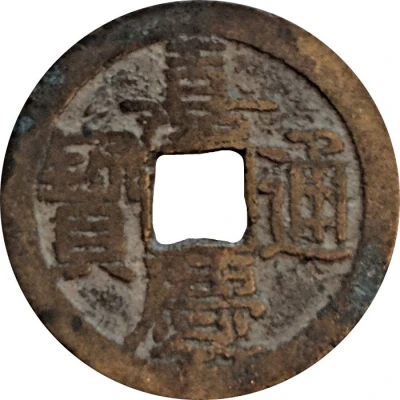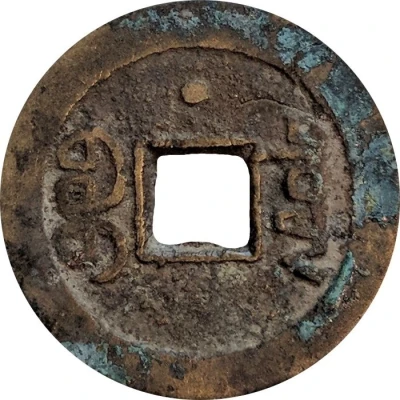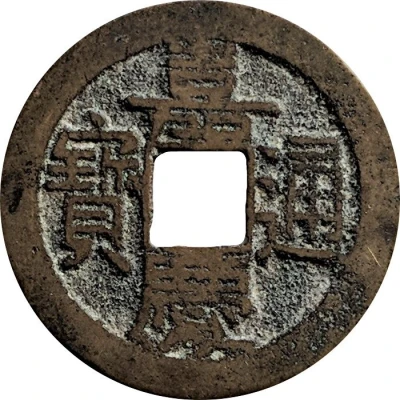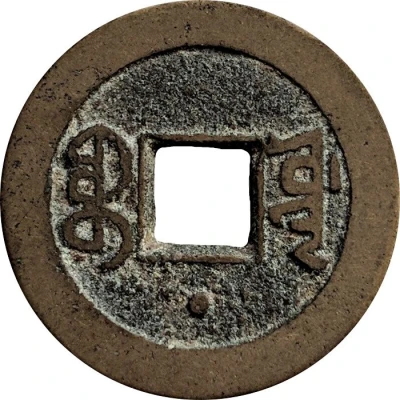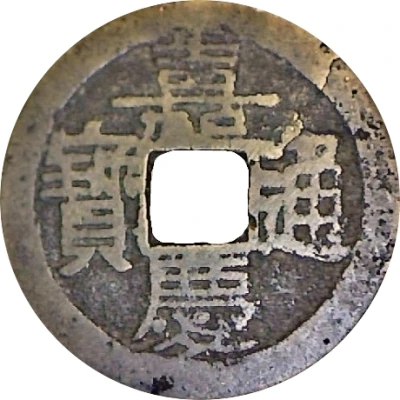
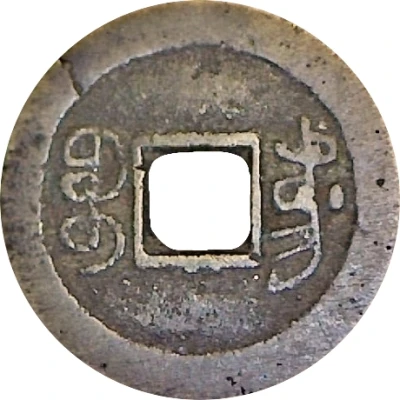

© ZacUK
1 Cash - Jiaqing Tongbao; Boo-dung ND
| Brass | 4.22 g | 25 mm |
| Issuer | Empire of China |
|---|---|
| Emperor | Qing dynasty › Jiaqing (嘉慶帝) (1796-1820) |
| Type | Standard circulation coin |
| Years | 1810-1820 |
| Value | 1 Cash |
| Currency | Cash (621-1912) |
| Composition | Brass |
| Weight | 4.22 g |
| Diameter | 25 mm |
| Shape | Round with a square hole |
| Technique | Cast |
| Orientation | Medal alignment ↑↑ |
| Demonetized | Yes |
| Updated | 2024-10-04 |
| Numista | N#45604 |
|---|---|
| Rarity index | 81% |
Reverse
Two Manchu words (read vertically) separated by the hole.
Script: Mongolian / Manchu
Lettering: ᠪᠣᠣ ᡩᡠᠩ
Translation: Boo-dung
Edge
Plain
Comment
Dongchung delayed opening in 1796, opening instead from 1799 to 1801 to cast small coins. It re-opened again in 1810, casting 44,887 strings (44,887,000 individual coins) a year. The specification of using Boo-dung on coins (rather than Boo-yūn) is not mentioned in records, so this was likely a local initiative.Interesting fact
One interesting fact about the Jiaqing Tongbao coin is that it was produced during a time of great economic and social change in China. The Jiaqing Emperor ruled from 1796 to 1820, a period marked by internal strife, foreign invasions, and economic instability. Despite these challenges, the Jiaqing Tongbao coin remained a widely used and trusted form of currency throughout the empire, demonstrating the resilience and adaptability of the Chinese people during this time.
